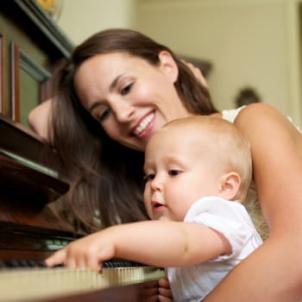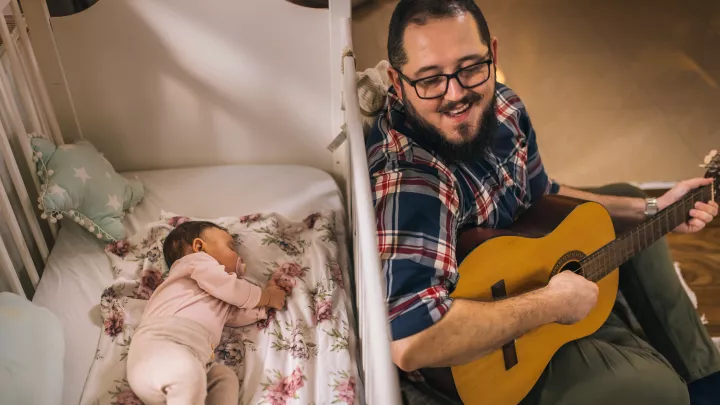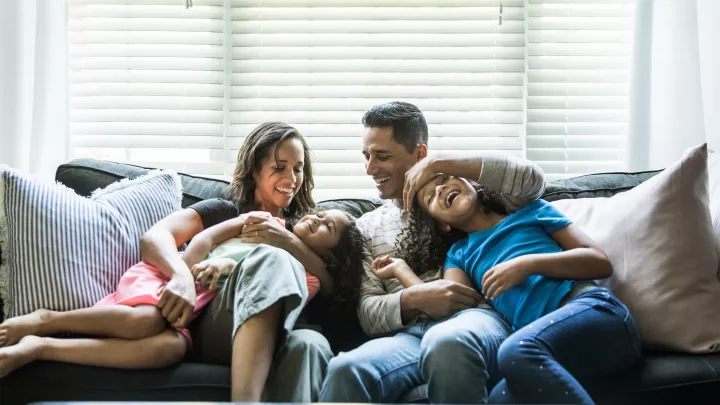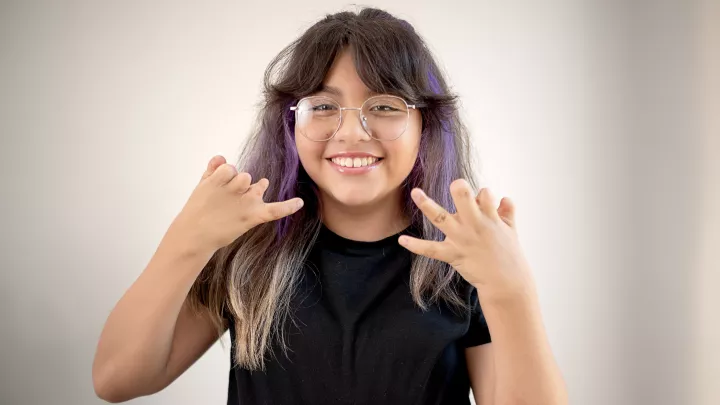Creating Memories
One day I was sitting on our family swing and I asked my teenage boy, Christopher, “What's your earliest childhood memory?” To my surprise it was not the many trips we did as a family, it was of him playing his saxophone in elementary school. This got me thinking, what was my earliest childhood memory? I thought for a few moments and then remembered playing with my toy truck in an open field, but this memory was really short and rather hazy. Chances are if you think your earliest memory dates are from your first year, or even early in your second year, it's not real or at least not one you formed from the actual experience.
A child's ability to remember has been proven in 17- and 24-month-old infants. One hint that a child is starting to develop memory begins at the age of nine months when children become less willing to leave their parent.
Experiences create memories

When babies experience something for the first time, it stimulates the areas of their brains that are responsible for storing and retrieving memories. It also causes their brains to form new connections among the nerve cells. The more of these neural connections babies have, the more ways they have to process information. It's also important to let them figure out how to master some tasks on their own, such as how to handle blocks that keep tumbling. Think of your memories as little tiny bits of information that are pieced together. Adults have a fine-mesh net to catch the tiny bits of information, but babies have a large-holed net. The bits of information just simply slip through. What’s happening with the baby is that a lot of the information is escaping even as the baby is trying to get it organized and stabilized. It’s only around 24 months that children seem to have better nets.
Create memories through a story
A few months before age 2, children can retain memories of experiences that happened to them a year earlier, but they won’t retain those memories into adulthood. The average earliest memory doesn’t date until around 3½ years of age.
The word story is important here. Children are learning how to organize memories in a narrative, and in doing so, they are learning and making memories. As children learn those forms, their memories become more organized, and more organized memories are better retained over time.
Talking to your children about the past in a story seems to be highly successful. Children begin to tell stories, and to process their experience in richer, more detailed ways.
Repeat, repeat, repeat
The young brain is fine tuning some of its already-formed connections, and that process requires repetition. Toddlers like to repeat actions over and over again. If your child learns that if they throw their cup from the highchair, it will fall to the ground. They do this over and over, not to annoy you but, to learn about cause and effect. Telling the same stories and singing the same songs over and over may feel boring to you, but it is not boring to children.
Young toddlers need repetition to help them remember information and build their memory. In order to learn how to do something well, your child may practice again and again until he gets it right. Once they have mastered a skill, they may repeat it just to enjoy the new learned skill. Repetition is a toddler’s way of learning and building trust.
Talk with your children
Children whose parents talk to them often have a larger vocabulary and start speaking sooner because they store many of these words in their memory. Try this: Whenever your child is saying a few new words, tell her yes, and add to it. So if they see a car you can say, “yes, that’s a car, it’s a big car, it’s a blue car.”
The more parents talk to their children, the faster the children’s vocabularies grow. Children need to hear language from birth, long before they can speak. Toddlers whose mother talk with them when they are infants have bigger vocabularies and a solid basis for later communication. Here are some ways you can expose your children to language:
- Play rhyming games together.
- Read aloud.
- Sing songs.
- Speak directly to your child and ask open-ended questions, not "yes" or "no" questions.
- Play a variety of music from different types of instruments, cultures or genres.
Introduce music
Children learn information more easily when it's paired with a melody. Music is also an effective, almost magical medium for learning and retaining information. It activates three different centers of the brain at the same time: language, hearing and rhythmic motor control. Music helps children and adolescents with attention problems in many ways:

- It can be used as a reward for desired behavior.
- It can be used to help enhance attention to “boring” academic tasks such as memorization, enhancing the interest of the lists to be memorized.
- Musical cues can be used to help organize activities; one kind of music for one activity (studying), another for a different activity (eating), and a third kind for heading to bed.
- Studies show that calming music can promote pro-social behavior and decrease impulsive behavior.
Music does not make us smarter, but it seems to prime our brains for certain kinds of thinking. The music pathways in our brain are similar to the pathways we use for spatial reasoning. When we listen to music, the spatial pathways are "turned on" and ready to be used. But the effect lasts only a short time. Our improved spatial skills fade within about an hour after we stop listening to the music. Learning to play an instrument can have longer-lasting effect on spatial reasoning. In several studies, children who took piano lessons for six months improved their ability to work puzzles and solve other spatial tasks by as much as 30 percent.
In closing, some parents are so concerned with a child's brain development that they buy expensive educational toys, videos, computers and language tapes. But before you do this, ask yourself, what does research suggest? Save your money. Too many new experiences or too much stimulation can cause stress and hinder a child's development. Children need freedom to explore on their own terms and not be exposed constantly to high levels of stimulation, such as watching television. The brain develops through hands-on experience during a lifetime; repetition of an experience tends to set neural connections.


